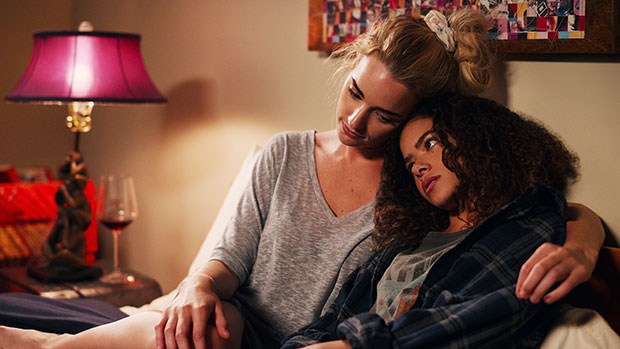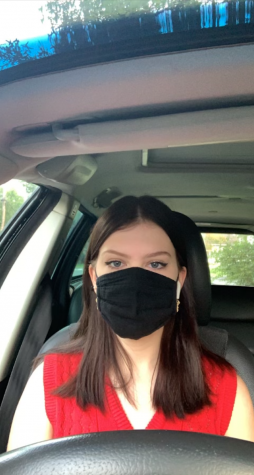Ginny and Georgia: Right Idea, Wrong Execution
March 22, 2021
“Ginny and Georgia” aired on Netflix on Feb. 24 and has since skyrocketed to popularity. However, not for the right reasons.
Also tokened as a knock-off “Gilmore Girls,” “Ginny and Georgia” is the story of a mother-daughter duo navigating a new town. At first, it may seem like a typical coming-of-age story with teenage romance and family disagreements. However, it takes a dark turn when more and more secrets of a mysterious past are revealed.
It sounds interesting, what could be the issue? “Ginny and Georgia” is a great show, but it is undermined by its multitude of problems which can all be summarized into one word: misrepresentation.
“I’m not going to lie, I did like it,” junior Sofia Corsaro said. “Even though it was problematic, I did think it was good.”
Starting with the most blatant and harmful misrepresentation in the show, “Ginny and Georgia” has significant issues in regards to racism. The show stars a biracial lead, yet it was written solely by white people; this is evident throughout the show.
Firstly, Ginny is introduced as a tough and outspoken lead when she calls out her English teacher in the first episode. Yet, her character is undermined when she ignores the many racist comments that her friends make and allows their microaggressions to be normalized.
Additionally, Ginny and her boyfriend, Hunter, have a particularly disturbing conversation in the show which they refer to as the “oppression Olympics.”
“But I’ve never seen you pound back jerk chicken,” Hunter said. “The last time I checked, Brodie twerks better than you. And I liked your poem, but your bars could use a little more work, homie. So really, how black are you then?”
The discussion, which is crammed with stereotypes, perpetuates the idea that someone is less or more black based on their ability to twerk or the types of food they consume.
“Something [the show] addressed poorly was the whole ‘racism Olympics’ thing,” Corsaro said. “It was really problematic and they were shouting racist arguments at each other and the show never reflected on why that was wrong. They just moved on and never talked about it.”
Moreover, another example of poor representation in the show is the depiction of sign language. One of the characters in the show is deaf and communicates solely through American Sign Language, yet many people have pointed out that some of the ASL in the show is actually inaccurate.
“If you’re going to set up a hearing character who has been married for, I’m guessing 20 years, to a deaf man who communicates solely using ASL, who signs with him, who interprets for him, who literally works as an educational interpreter in a school, you need to find an actress who knows sign language or actually take the time for them to actually learn sign language,” deaf TikToker Erin Rosenfeld said.
Furthermore, the show made a sexist joke about Taylor Swift when one character was shaming another for having many boyfriends in the past. Swift herself spoke out about this on Twitter which shed even more light on the problems of the show.
“Something else I don’t like that they did was make a joke about Taylor Swift,” Corsaro said. “It is an overused, sexist joke and they need to get over it… If my girl T-Swifty was a man, that would not be in there.”
Another, more trivial, misrepresentation in “Ginny and Georgia” is the way high school students act and talk. Many teenagers have commented on the cringy and unrealistic things that the younger characters do such as using old Snapchat filters, dabbing, and using jargon that is obviously written by middle-aged people. Although it is inaccurate, it is great for a laugh.
It was also unrealistic to many fans how much partying, drinking, drugs and sex were prevalent in the show amongst teenagers.
“Some teenagers do go out and party a lot but not a lot of teenagers do that,” Corsaro said. “I feel like they completely overdid it with the sex and drugs thing.”
Overall, “Ginny and Georgia” had great potential but it is all wasted, for the show falls short in so many ways, especially when it comes to addressing racism, representing ASL, and relating to the younger generation. It’s safe to say that representation on screen isn’t enough, there should also be people of color behind the scenes and people who genuinely know how to speak ASL speaking ASL.



